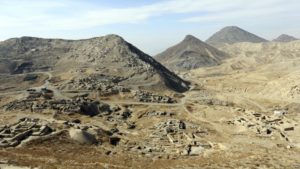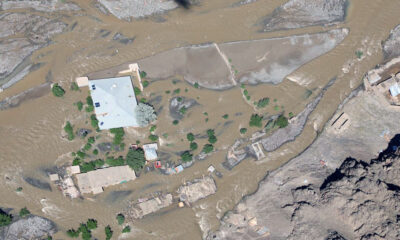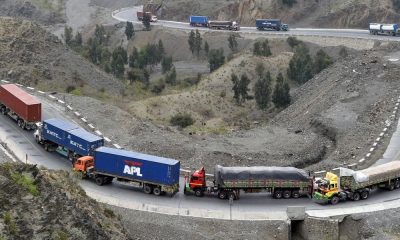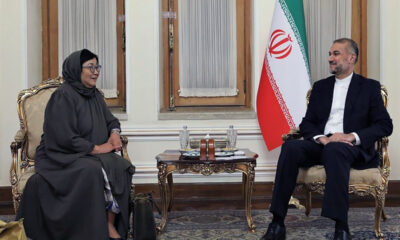Latest News
Taliban, IS Make Millions of Dollars From Mining Minerals in Afghanistan

Rising global demand for cosmetics, marble and stainless steel is helping Taliban and Islamic State (IS) militants in Afghanistan fund their increasingly violent insurgencies, according to an investigation by Global Witness.
The insurgent groups make millions of dollars annually from mining talc, chromite, and marble in the eastern part of Afghanistan.
The international NGO in a report on Tuesday estimates the Taliban earns $2.5 million to $10 million a year from mining talc alone.
It is unclear how much Islamic State’s local affiliate, which has fought and taken over mining areas from the Taliban in three districts of Nangarhar province, has managed to exploit the mines, according to Global Witness.
“The relationship between the Islamic State and mining is powerful and worrying, but it is only a case study for what is a much larger problem,” said Nick Donovan, a campaign director at Global Witness.
“Not just insurgent groups but also a host of other illegal, semi-legal and legal armed groups across the country benefit from mining. The Taliban in Nangarhar province demonstrate this with particular force.”
Global Witness cited unidentified people claiming that IS had brought in foreign engineers from Pakistan and Saudi Arabia and installed heavy machinery at the mining sites. Phones are banned and locals are searched and monitored by the groups near the mines, according to the report.
“Talc is being extracted in the regions which are under the Taliban’s control, but their transport and exportation is being done through under government control areas,” said Naser Timori, researcher of Integrity Watch Afghanistan (IWA).
According to Global Witness, most of Afghanistan’s talc production is smuggled across to Pakistan at the Torkham border where it can eventually be shipped out to other markets.
“The relevant institutions should not be silent regarding the situation of mines [in the country], they can be called guilty from law’s perspective,” said Mohammad Zamir Zamani, a lawyer.
Calling the report as worrying, the Interior Ministry Spokesman Najib Danish said that they will make efforts to ensure security of the mines in the country.
The Ministry of Mines and Petroleum refused to make a comment in this regard. Earlier, the Defense Ministry has also expressed concerns regarding the mining of minerals by the militant groups in the areas which are under control of the anti-government elements.

Latest News
Ministry of Defense confirms one dead, 12 injured in chopper crash in Ghor
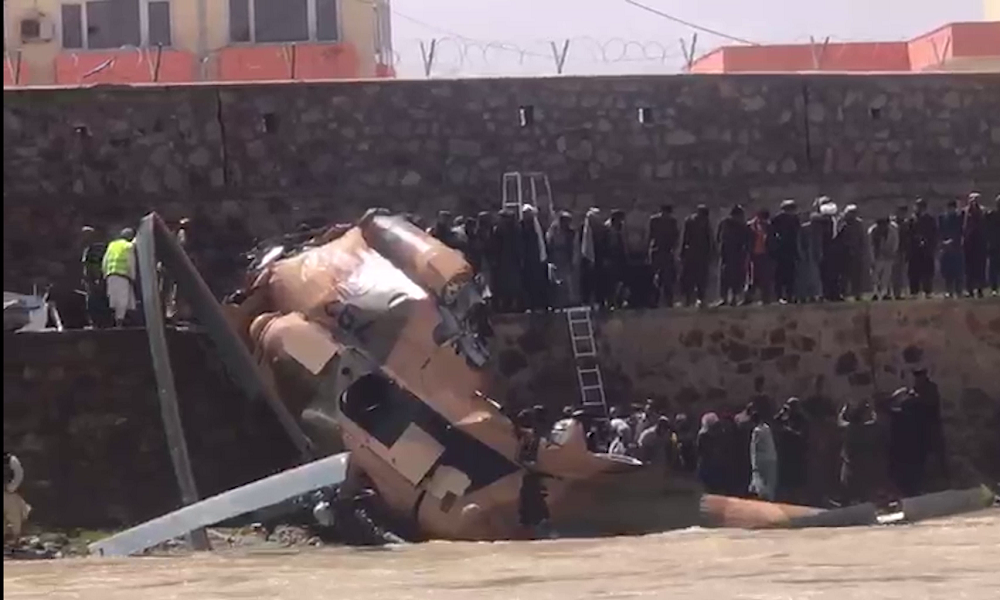
Afghanistan’s Ministry of Defense confirmed Wednesday that one person was killed and 12 were injured when a helicopter crashed in Firozkoh, the capital of Ghor province.
Enayatullah Khwarazmi, the spokesman of the Ministry of Defense, said on X that on Wednesday morning, an Air Force Mi-17 helicopter, which was sent to Ghor province, experienced technical problems and crashed into a wall during an emergency landing.
In footage published by Afghan media, the wreckage of a helicopter can be seen lying in a fast-flowing river, with crowds of people gathered around it.
The spokesman of the Ministry of Defense said the helicopter had been sent to Firozkoh to retrieve bodies of car crash victims.
The spokesman said a car plunged into the Harirod River a few days ago, resulting in the death of a few people.
Latest News
IEA’s political deputy meets with Japanese ambassador
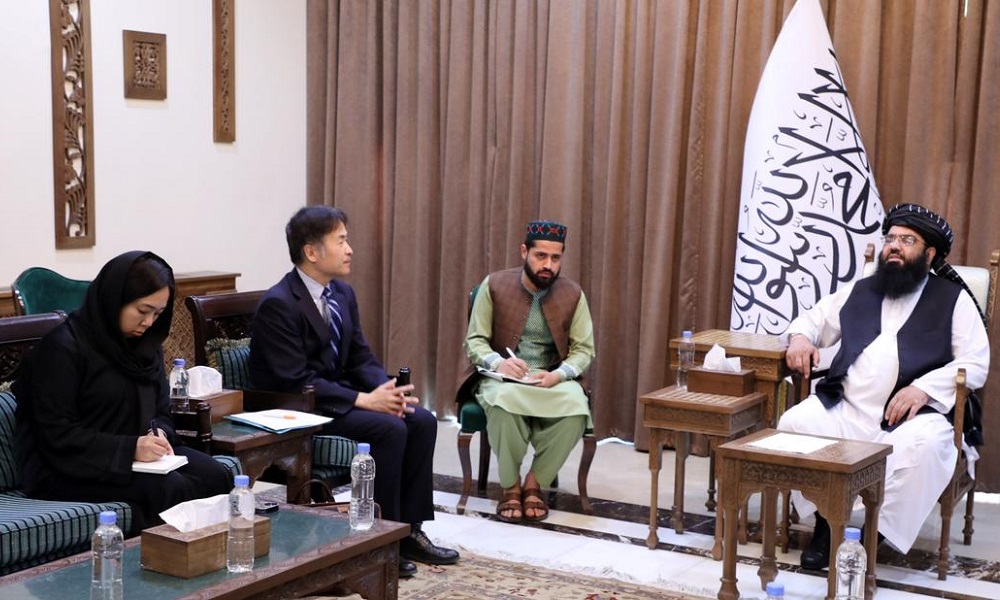
Takeyoshi Kuramaya, Japan’s ambassador to Afghanistan, said in a meeting with Mawlavi Abdul Kabir, the political deputy prime minister, that the lack of diplomatic presence of Western countries in Afghanistan has caused them to be unaware of the positive developments in the country.
According to him, the international community should have direct contact with the Islamic Emirate.
Kuramaya also said Japan is committed to cooperating with Afghans in dealing with natural disasters, treating drug addicts and finding alternative crops for former poppy farmers.
On the other hand, Kabir said at this meeting that due to the support of the people, the Islamic Emirate has been able to ensure national peace, start big projects and make many other improvements.
The political deputy added that the Islamic Emirate is trying to solve people’s problems and wants positive interactions and broad relations with the world.
Latest News
US think tank calls for revised counterterrorism strategy amid growing concerns
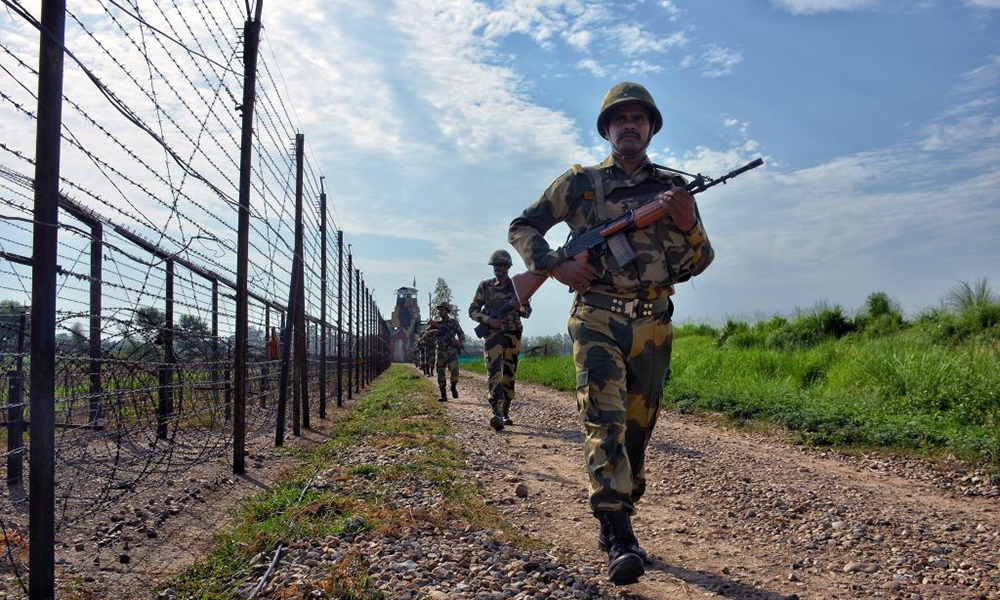
The United States Institute of Peace (USIP) on Tuesday issued a report by the Senior Study Group on Counterterrorism in Afghanistan and Pakistan and highlighted the urgent need to recalibrate the US counterterrorism strategy amid growing strategic competition with China and the ongoing tensions between India and Pakistan.
The USIP report argues that counterterrorism should not be perceived as a distraction from strategic competition but rather as a crucial component in protecting the strategic agenda.
Terrorist groups in Afghanistan and Pakistan still possess the intent and growing capability to target the US and its interests, the report noted, adding that a successful terrorist attack would not only result in tragic loss of lives but also divert resources and attention from strategic competition, undermining America’s credibility and alliances.
In addition, the report stated terrorist attacks originating from the region could spark dangerous regional crises, particularly between India and Pakistan, both nuclear-armed states.
It also stated that the US withdrawal from Afghanistan has emboldened terrorist groups, providing them with opportunities to regroup and collaborate.
ISIS-K (Daesh), for instance, presents a growing threat with a reach beyond the immediate region, while the Tehreek-e-Taliban Pakistan (TTP) has re-emerged as a significant regional security threat, the report read.
The USIP study group meanwhile suggested the Islamic Emirate need to be pressurized “to mitigate terrorist threats while maintaining communication channels for counterterrorism exchanges rather than adopting a cooperative approach with open-ended incentives or a pressure campaign that isolates the Taliban (IEA) entirely.”
The report also suggests increasing military and intelligence resources dedicated to counterterrorism in Afghanistan and Pakistan. This includes improving intelligence, surveillance, and reconnaissance (ISR) capabilities and expanding the US Department of State’s Rewards for Justice program.
The report also emphasizes the need for greater transparency in legal authorities for counterterrorism operations, ensuring actions are justified and minimizing civilian harm. This involves targeting terrorist groups planning attacks against the US and employing cyber operations to disrupt their communications.
Another suggestion was the need for enhanced counterterrorism-specific security assistance and intelligence to Pakistan.
This assistance aims to “reduce the TTP’s threat as well as to obtain Pakistani assistance on top US counterterrorism concerns, secure long-term airspace access for operations in Afghanistan, and leverage reliable access in Pakistan in the event of a terrorist attack contingency.”
The report also highlights the importance of improving preparedness for terrorist attacks in the US homeland and abroad, especially in South Asia. This includes enhancing intelligence collection and analysis, providing travel warnings, and securing emergency military operations bases in Central Asia and Pakistan.
-
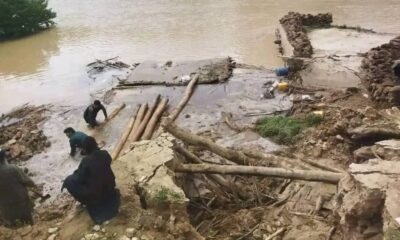
 Latest News5 days ago
Latest News5 days agoHundreds killed and injured in floods in four Afghan provinces
-
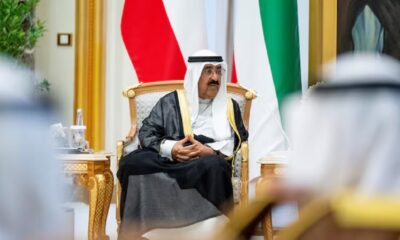
 World5 days ago
World5 days agoKuwait’s Emir dissolves parliament, suspends some constitution articles
-

 World5 days ago
World5 days agoUN General Assembly backs Palestinian bid for membership
-

 Sport5 days ago
Sport5 days agoSorkh Poshan Khafi and Sarsabz Yashlar win in ACL matches
-
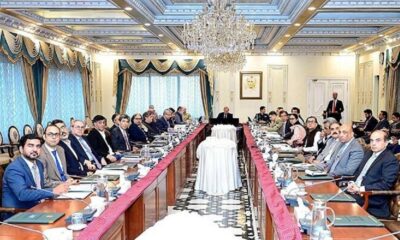
 Business4 days ago
Business4 days agoPakistan: Consultations underway on preferential trade agreement with Afghanistan
-
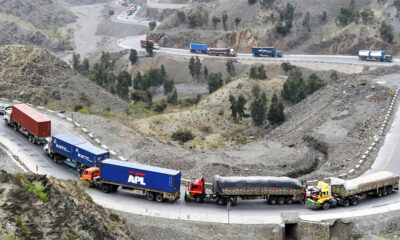
 Business4 days ago
Business4 days agoAfghanistan, Pakistan agree on new travel mechanism for truckers
-

 Sport4 days ago
Sport4 days agoKolkata down Mumbai to confirm IPL play-off berth
-

 Business3 days ago
Business3 days agoAfghanistan can become important industrial center in region: Hanafi

